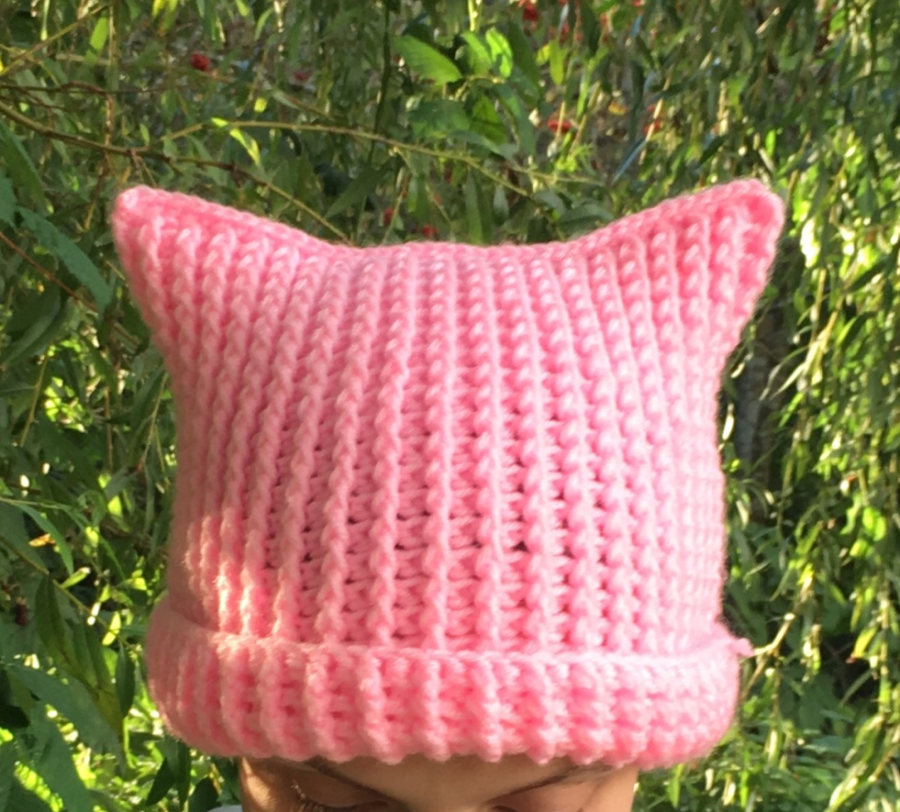Cat Beanies and Their Origins in the Feminist Movement
Handmade cat beanies took the world by storm, worn by many students throughout Cupertino High School. Yet many may not be aware of their true origin: the feminist movement.
Originally called the Pussyhat Project, creators Krista Suh and Jayna Zweiman started the project as a protest against former President Donald Trump’s misogynistic comments and to empower women everywhere.
Following the 2016 election, Zweiman started looking for a more inclusive way to support the women’s rights movement outside of marches, eventually creating the Pussyhat Project.
Suh and Zweiman established pink as the signature color of the hats, meant to be a powerful representation of women’s strength and femininity. As pink has historically been treated as purely feminine and ‘girly,’ a sea of pink hats worn by many to represent strength visually reclaimed the color. The nature of the hats came from traditional women’s crafts, being handmade and crafted by knitting, crocheting or sewing. The project was a simple way for anyone to support the movement by refuting the idea that these were strict ‘women’s crafts.’
The design and name of the hats themselves also had a deeper meaning, reclaiming the word ‘pussy’ in a positive light. This word typically has several meanings: a cat, as an insult to someone who is cowardly or behaving like a ‘woman.’ Utilizing the word for the hat’s shape and name has brought new meaning to it. It empowers women rather than portraying them in a cowardly negative light.
As the project took hold, the hats became wildly popular due to the internet. The pattern, found online for free, was downloaded over 100,000 times as of people wore the signature pink ears during marches and events. Although not always bright pink, the two pointy ears, unique to the pussyhats, continue to be worn by many students at CHS.
Even though the project’s popularity may have dwindled compared to back in 2017, the beanies’ legacy continues in schools such as CHS. They have become a part of the permanent collection of Michigan State University’s museum and the Rapid Response collection of the Victoria and Albert Museum in London. Now an integral part of feminist history, the cat beanies will always live on as a digital campaign that became a real-world effort, showcasing protest, solidarity and participation in the fight for women’s rights.






